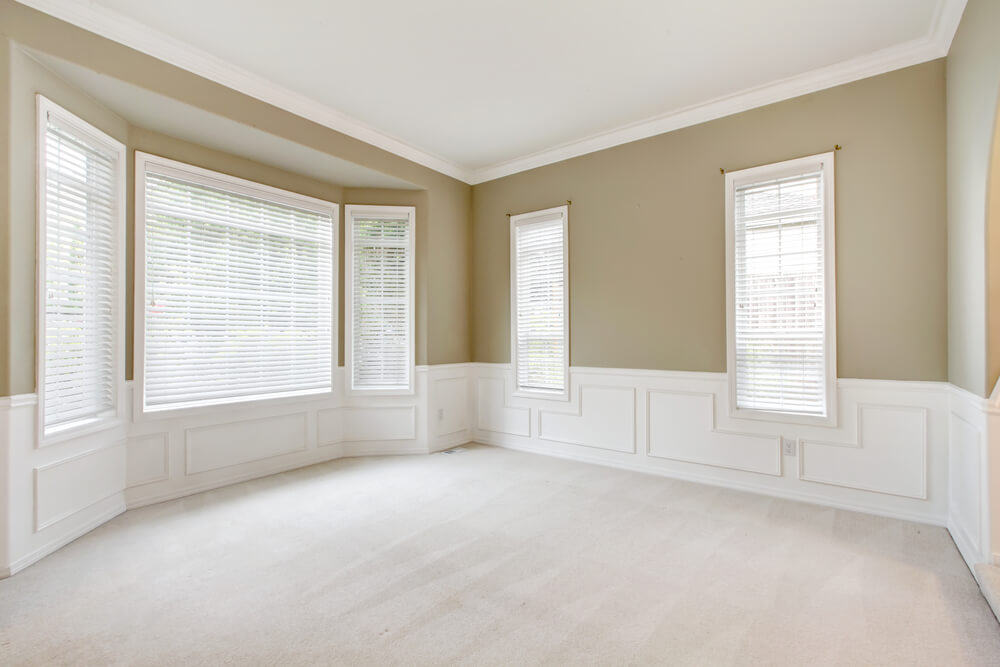If you have an unoccupied or empty property, you need to take certain precautions to ensure that it’s as secure as possible.
Here we at Cover4LetProperty will outline some of our top tips in this area.
Insurance cover
Before we do so, let’s just have a quick re-cap as to why this is required and the implications for things such as unoccupied property insurance:
- once your property stands unoccupied for more than the period of time specified in your landlord insurance policy, you will need to take out unoccupied property insurance in order to maintain full cover;
- that time period varies from policy to policy but is typically in the range 30-45 consecutive days;
- this applies irrespective of the reason your property is standing unoccupied or whether or not it’s furnished.
As part of the conditions of cover associated with typical unoccupied property insurance, you may find you’re obliged to take certain steps to keep your property secure and to minimise certain types of risk. Failing to do so might put your cover in peril, so it’s worth being sure that you comply.
Top tips for reducing burglary risks
A major category of risk with empty property arises from burglars, vandals and sometimes squatters. Keeping in mind that typically such individuals prefer to avoid the risk of encounters and that they’re often opportunistic in nature:
- make sure that all your doors and windows are securely locked with quality security devices such as deadlocks;
- leave a light or lights on timers – this suggests occupation (or raises uncertainty) for any prying eyes;
- enter your property periodically to adjust curtain positions;
- don’t allow post to visibly accumulate in letter boxes;
- keep your external garden areas tidy and the grass cut;
- don’t disconnect landlines or put answerphone messages on them indicating that nobody is in occupation at the moment;
- if the property’s unoccupied due to internal building work, don’t allow builders to put advertising signs in windows saying as much.
Property environmental systems risks
Your property will typically have certain services perhaps including water, electricity, gas, heating, drainage and sewerage.
Should these go wrong when tenants are in occupation, typically you’ll be notified and might be able to resolve them quickly before serious damage is incurred. When your property is empty though, nobody will be there to inform you so:
- shut off the gas supply at source – unless freezing weather is anticipated in which case it may be necessary to leave heating on at a low level to prevent frost damage (check the requirements of your policy for specifics);
- do likewise for water, unless it’s required for central heating;
- unplug all electrics except for the lights on timers and perhaps anything required for central heating in winter, if you leave it on;
- check the property regularly for leaks from pipework, remembering that even if the water is off at source, your heating system will still have lots of water in it unless you’ve completely drained it down;
- check inside for evidence of damp patches on walls and if spotted, resolve them quickly;
- inspect external downpipes and gutters/drains. If they’re blocked and flooding, action should be taken immediately.
External risks
Basic good practice here should include:
- looking for signs of damage to roofs, including slates and tile slippage. It’s also advisable to do so internally from the loft if it’s accessible;
- checking the windows and doors to ensure they’re still watertight and that no glass is broken or damaged;
- clearing any rubbish or detritus that’s accumulated in the garden due to storms or winds. Keeping the property’s exterior well-maintained creates the appearance of occupancy;
- keeping an eye out at ground level around the property for any signs that might indicate external damp patches due to blocked drains etc.;
- installing security measures – this may include alarm systems, security cameras, and motion-activated lighting.
Finally, remember to check your policy for any specific requirements about the frequency with which you’re required to visit your empty property and perform any required checks. Under the terms of your empty property insurance policy, it might be required that you keep a journal of the dates and times of your visits plus any remedial action you might have undertaken while there.








